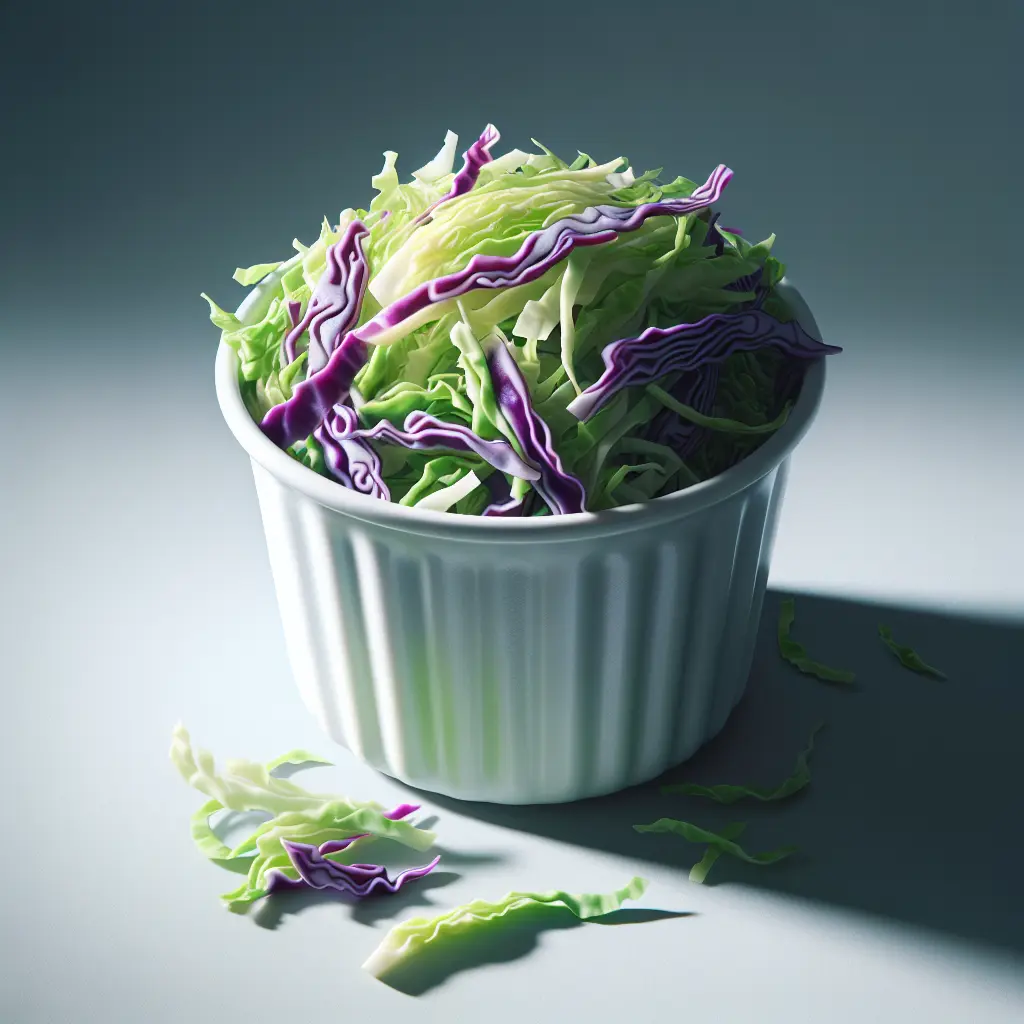The Nutritional Profile of Cabbage
Cabbage is a nutrient-rich vegetable loaded with essential vitamins, minerals, and antioxidants. Here's a breakdown of its nutritional value per 0.5 cup serving (shredded):
- Calories: 17
- Protein: 1 gram
- Fat: 0.1 gram
- Carbohydrates: 4.1 grams
- Fiber: 1.4 grams
- Sugar: 2.1 grams
This low-calorie vegetable is an excellent source of dietary fiber, which promotes satiety, reduces hunger, and supports a healthy digestive system. Cabbage is also a rich source of vitamin C, an essential antioxidant that boosts immunity and protects cells from damage.
Health Benefits of Cabbage
Incorporating cabbage into your diet may offer several health benefits, including:
- Anti-inflammatory properties: Cabbage contains powerful antioxidants such as sulforaphane and anthocyanins, which have anti-inflammatory effects and may protect against chronic diseases.
- Protection against chronic diseases: The antioxidants in cabbage may help protect against certain types of cancer, including lung, breast, and colon cancer.
- Weight management: Cabbage is low in calories and high in fiber, making it an ideal food for weight management. Fiber promotes satiety and reduces overall calorie intake.
- Blood sugar control: Cabbage contains soluble fiber, which helps slow down sugar absorption and supports stable blood sugar levels.
Culinary Versatility of Cabbage
Cabbage is a versatile vegetable that can be enjoyed in a variety of culinary preparations. Here are some popular ways to incorporate cabbage into your meals:
- Salads: Shredded cabbage forms the base of classic salads such as coleslaw and Asian slaw. Its crunchy texture and mild flavor complement a range of dressings and toppings.
- Stir-fries: Cabbage adds a healthy crunch and vibrant color to stir-fries. It pairs well with other vegetables, meats, and sauces.
- Soups: Cabbage can be added to soups for added texture and nutrients. It is a common ingredient in hearty soups, such as cabbage soup and vegetable beef soup.
- Braised dishes: Braising cabbage in a flavorful liquid, such as broth or wine, transforms it into a tender and flavorful side dish.
Cabbage is a versatile and nutritious vegetable that deserves a place in a healthy diet. Its low-calorie content, high fiber, and antioxidant properties make it a valuable addition to salads, stir-fries, soups, and braised dishes.
How many calories are in Cabbage?
Each 0.5 cup, shredded of Cabbage contains 17 calories.
Cabbage Nutritional Information
| Nutrient | Amount per 0.5 cup, shredded (75g) |
|---|---|
| Calories | 17 Calories |
| Protein | 1g |
| Fat | 0.1g |
| Saturated Fat | 0g |
| Cholesterol | 0mg |
| Carbohydrates | 4.1g |
| Dietary Fiber | 1.4g |
| Sugar | 2.1g |
| Sodium | 0.006mg |
| Potassium | 0.147mg |
| Calcium | 0.036mg |
| Iron | 0.0001mg |
